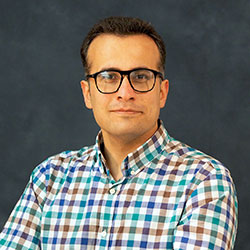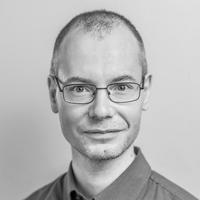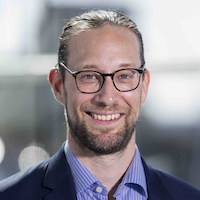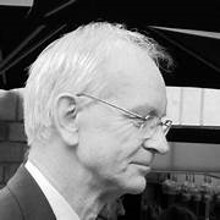Speakers
Keynote speakers

Hadi Heidari
Medical Wearable and Implantable Devices
Abstract:
In recent years, an enormous surge of work has been carried out on developing new technologies for microelectronics and sensing devices of various kinds of applications in the peripheral and central nervous systems. Wearable and implantable neural interfacing devices have added significantly to neural engineering by introducing the low-frequency oscillations of small populations of neurons known as local field potential as well as high-frequency action potentials of individual neurons. Regardless of the astounding progression as of late, conventional neural modulating system is still incapable of achieving the desired chronic in vivo implantation. The real constraint emerges from mechanical and physical differences between implants and brain tissue, initiating an inflammatory reaction and glial scar formation that reduces the recording and stimulation quality. Furthermore, traditional strategies consisting of rigid and tethered neural devices cause substantial tissue damage and impede the natural behaviour of an animal, thus hindering chronic in vivo measurements. Therefore, enabling fully implantable neural devices requires biocompatibility, wireless power/data capability, biointegration using thin, flexible electronics, and chronic recording properties.
The talk will introduce our research at the Microelectronics Lab at the University of Glasgow on integrated electronic circuits and sensors with several different works addressing the development of architectures for the implementation of efficient biomedical wearable and implantable technologies. It presents developments and trends in sensors and circuit Interfaces focusing on developing various types of brain implantable devices.
Bio:
Hadi Heidari is Professor of Nanoelectronics in the James Watt School of Engineering at the University of Glasgow, United Kingdom. He is the Head of the Electronics and Nanoscale Engineering Division and holds an EPSRC Open Fellowship. His Microelectronics Lab (meLAB) conducts pioneering research on integrated micro/nanoelectronics design for medical (wearables and implantables) and industrial (quantum computing and ultrasound systems) applications. His group is part of the Communications, Sensing and Imaging (CSI) group, Centre for Medical and Industrial Ultrasonic (C-MIU), as well as Centre for Quantum Technology, where he leads modern cryoelectronics for quantum computing.
Prof Heidari is the CTO and co-founder of Neuranics, a deep-neurotech company which is building next-generation magnetic sensors for wearable neural interfaces.
Prof Heidari’s meLAB has contributed to £30M national/international research projects and received over £10M funding from major research councils and funding organizations, including the UKRI (EPSRC and Innovate UK), European Commission, the Royal Society, British Council, Scottish Funding Council, and Royal Society of Edinburgh. Prof Heidari is a member of the IEEE Sensors Council Member-at-Large (2020-21 & 2022-23) and was IEEE Circuits and Systems Society Board of Governors (2018-20). He is Associate Editor-in-Chief of the IEEE Journal on Emerging and Selected Topics in Circuits and Systems (JETCAS) and serves on the editorial board of several journals, including Elsevier Microelectronics Journal, IEEE Transactions on Biomedical Circuits and Systems, IEEE Access, IEEE Sensors Journal, and Frontiers in Neuroscience. He acts as the General Chair of IEEE ICECS 2020 and 2022 in Glasgow, Technical Program Chair of IEEE PRIME’19, and serves on the organising committee of several conferences, including the UK Circuits and Systems Workshop (UKCAS), UK-China Emerging Technologies (UCET) Conference, IEEE SENSORS’16 and ’17, NGCAS’17, BioCAS’18, PRIME’15, ISCAS’23 and ’25, and the organiser of several special sessions on the IEEE Conferences. Prof Heidari has authored/co-authored over 280 peer-reviewed publications in top-tier journals or conference proceedings and acts as a reviewer for several journals and conferences.

Joachim Oberhammer
Silicon-micromachined THz systems – enabling the large-scale exploitation of the THz frequency spectrum?
Abstract
The sub-THz frequency spectrum (100-1000 GHz), though already exploited for scientific applications for several decades, is still lacking technology solutions in particular for system integration, high-performance passive components and interfaces including antennas. Furthermore, for a large-scale exploitation of these frequency bands in different applications in society, different fabrication technologies are needed which are volume-manufacturable and have high yield and product uniformity. After an introduction to THz frequencies and applications, this talk shows the state of the art in silicon-micromachining fabrication techniques, which offer outstanding RF performance, proven high-volume manufacturability and system integration capability. Several technology demonstrators based on very low loss micromachined waveguides will be presented, including filters (telecommunication diplexers from D-band frequencies with Q-factors of 1600, up to 750 GHz filters with Q-factors of 900), steerable and corporate-fed antenna arrays up to 39-dBi gain in different bands from 200 to 400 GHz, 220-330 GHz phase shifters with best phase-shift to loss performance in any technology at several sub-THz frequency bands, and micro-electromechanical waveguide switches in several bands up to 750 GHz. Furthermore, micromachined system level solutions including a D-band communication link and a 240 GHz car radar front-end will be presented. The talk closes with a novel radar sensor development involving beam-steering and beam-shape switching enabled by micromachined hardware co-developed with computational-imaging signal-processing methods.
Bio
Joachim Oberhammer is a professor in Microwave and THz Microsystems at the School of Electrical Engineering and Computer Science, Dept. of Micro and Nanosystems, KTH Royal Institute of Technology in Stockholm, Sweden, since 2015. He has lead radio-frequency/microwave/terahertz micro-electromechanical systems research at KTH for over 15 years. He is author and co-author of more than 150 reviewed research papers and holds 4 patents.
His career includes positions as guest professor “Chair of Excellence” at Universidad Carlos III de Madrid, Spain, and guest researcher stays at Nanyang Technological University, Singapore and at the NASA-Jet Propulsion Laboratory, USA. He is recipient of an European Research Council (ERC) Consolidator Grant, has been an Associate Editor of IEEE Transactions on Terahertz Science and Technology 2018-2021, Steering Group member of the IEEE MTT-S and AP-S Chapters Sweden since 2009, has been Steering Group member of the Young Academy of Sweden 2014-2016, Scientific coordinator of the EU RIA H2020 projects Car2TERA and M3TERA, as well as PI of two SEK 35 million strategic framework grants on electronics and terahertz communication, and received six Best Paper Awards at IEEE conferences.

Matthias Christandl
Quantum Communication with Noisy Devices
Abstract
Designing encoding and decoding circuits to reliably send messages over many uses of a noisy channel is a central problem in communication theory. When studying the optimal transmission rates, it is usually assumed that these circuits can be implemented using noise-free gates. While this assumption is satisfied for classical machines in many scenarios, it is not expected to be satisfied in the near future for quantum machines where decoherence leads to faults in the quantum gates. As a result, fundamental questions regarding the practical relevance of quantum channel coding remain open. In the presented work, we initiate the study of these questions and show how techniques from quantum computation and communication can be combined to arrive at a communication analog of the famous threshold theorem. The threshold theorem says that one can compute (and now also communicate), when the noise per gate is below a certain threshold. We expect our results to be relevant for satellite communication as well as the execution of quantum software on distributed quantum processor cores.
Bio
Matthias Christandl is a professor of mathematics at the University of Copenhagen developing Quantum Software for a future Quantum Computer. He is the center leader of the Quantum for Life Center funded by the Novo Nordisk Foundation and the chairman of the University of Copenhagen Quantum Hub. Matthias holds a PhD from the University of Cambridge and is a member of the Royal Danish Academy of Sciences and Letters.

Morten Møller
The EU Chips Act
Abstract
In this keynote, we’ll be delving deep into the European Chips Act, the EU’s strategic initiative that addresses the multifaceted challenges in semiconductor production and supply. Recognizing semiconductors as the linchpins of our modern digital era, the Act emphasizes the crucial aspects of security, continuity, and resilience.
Throughout this presentation, we will uncover the three core concerns that motivated the EU to draft this legislation: the pressing semiconductor shortage, looming security risks from depending on external sources, and the overarching economic ramifications of these challenges. Our exploration will be anchored in the Act’s three foundational pillars: the ambitious “Chips for Europe” initiative, which seeks to harmonize infrastructure with the EU’s research endeavours and bolster support to start-ups and SMEs; the “Security of Supply” strategy, dedicated to establishing groundbreaking semiconductor production facilities; and the vigilant “Monitoring and Crisis Response” framework, geared towards maintaining stability even in tumultuous times.
Bio
Experienced senior consultant with a demonstrated history of working in the information technology and services industry. Skilled in project work, International telations, European Union, European politics, and EU funding. Strong consulting professional with a Master of Arts – MA focused in Nordic literature and language from Aarhus University.
